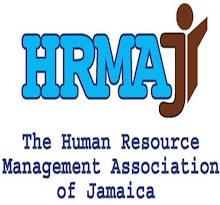Last night I pre-recorded an interview with Dr. Sonia
Davidson for CaribHR.Radio. She made the point that human resource professionals need to be role
models. The topic happened to be corporate wellness but we went well past the
easy stuff like running 5k's and putting in corporate gyms.
Instead, we looked at the need for HR practitioners to get
mental health assistance - not after the fact, but proactively. After our
conversation a wider thought struck me: having a coach isn't a widely accepted
practice in corporate Jamaica.
The assumption in most workplaces is that coaching is a
luxury... until it's desperately needed. Then, it's seen as a final effort to
help someone who is in "Big Trouble." Possibly, they are just one
step from being fired.
At that moment, the expense is seen as a requirement, but
the damage has already been done. Performance has dipped, a reputation has been
sullied and the person is already dispirited with their resume doing the
rounds. Unfortunately, this last-gasp approach is encouraged by HR
practitioners. They don't appear to distinguish between an ongoing coaching
relationship and casual advice offered by a well-meaning friend.
In 1995 I hired a coach to help me become a better business
owner. I had recently started my own training at CoachU, where the trainers
emphasized the necessity of having one's own coach. Trusting their advice, I
hired an expert and began a relationship that lasted until 2006.
Over the course of the decade, the quality of our
conversations shifted dramatically. In the beginning for example, I was late
for our first call. She responded quickly by including a paragraph in our
agreement: if I were late again, her rate would increase by 50%, then by 100%
if it recurred. After the third infraction, I would be fired as her client.
In 11 years I was never late for a single call.
As you can imagine, after working together for so long, she
learned all my foibles and the conversations were far more impactful than they
were at the start. She could not be outsmarted by the mental tricks I played on
friends, family and colleagues where I could evade responsibility or accept
sloppy standards.
Furthermore, she was highly trained. Speaking with her was
unlike any conversation I ever had with others. Plus, her list of accomplished
clients meant that she had a vast experience that novices coaches, or the
average manager, simply did not possess. As a result, I owe a lion's share of
my professional success to her persistent, continuous help.
You could imagine how these kinds of relationships could be
a tool in transforming your company. Perhaps as you look at the aspirants to
the executive suite you shake your head... so much raw talent, but so many
glaring flaws.
However, the place to start isn't with them... it's with
you. Until you have benefited from a long-term coaching relationship it's hard
to be an advocate of its value. So take Dr. Davidson's advice and be a role
model. Let people see that the HR practitioners in your firm are proactive,
receiving the best coaching in the company... not the least.
Francis Wade is the founder of CaribHRForum, an author and
management consultant.



No comments:
Post a Comment